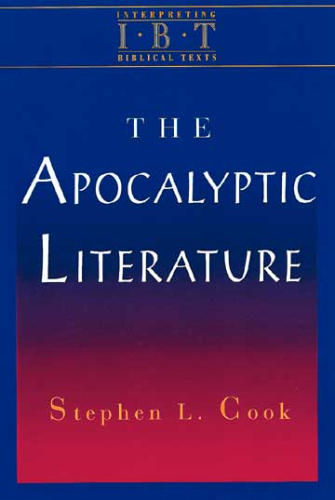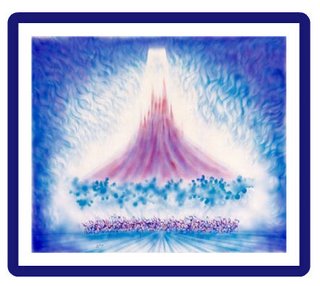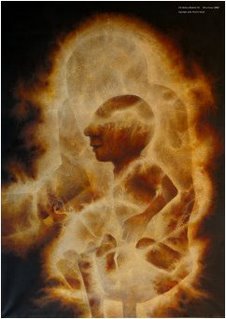Malachi 3:1-4 for 2 Advent, continued (part 3)
I treat the book of Malachi on pp. 119-123 in my recent book, The Apocalyptic Literature. If you don't have
 time to take a look at this right now, then simply click here for some good, brief background on Malachi and his times.
time to take a look at this right now, then simply click here for some good, brief background on Malachi and his times.Malachi's apocalyptic message comes from the post-exile period, perhaps the mid-fifth century BCE, when the people's enthusiasm at the rebuilding of the temple after their return from Babylonia had worn off. The people and priests had lapsed in faithfulness and become mechanical in worship. Malachi engages them in sharp dialog and legal disputation.
To get a handle on Malachi's theology, think Sinai Covenant, Book of Deuteronomy, Vassal/Suzerainty Treaty, Levites. This is the stream of theological tradition that furnishes the themes and symbols of Malachi's particular apocalyptic imagination. It is a rich and powerful stream of tradition within Scripture!
To understand the passage's emphasis on God's overpoweringness at God's advent, simply consider Mount Sinai ablaze at the giving of God's vassal covenant to Israel.

"Who can endure the day of [God's] coming? Who can stand when he appears?" (Malachi 3:2). The people gathered around Mount Sinai did not think that they could! They cried out: "If I hear the voice of the LORD my God any more, or ever again see this great fire, I will die" (Deuteronomy 18:16; cf. Exodus 19:16; 20:18; Deut 5:26; Mark 9:6; Luke 5:8).
The overpoweringness of God's presence is one reason that Sinai texts like Deuteronomy 18:15-19 and Malachi 3:1 emphasize that a covenant messenger or mediator should always help God's people be the kind of kingdom of priests and holy nation that covenant relationship with God should entail. We frail humans need guidance and protection in interrelating with such an awesome God as Yahweh of hosts.
Can we come to accept God's fiery overpoweringness as good news? I think we must. Would we ever realize our mortality and human frailty if we had no sense of God's towering numinousness? If God's firely otherness did not consume away our pride and hubris, would we ever  reach out in mutuality to our co-vassals under God's covenant?
reach out in mutuality to our co-vassals under God's covenant?
Verse 6 of our text speaks of the fear/awe of God (ירא). This is indeed what human beings experience in the face of the numinous. The numinous—that which dwarfs and unnerves us—gives rise to ethical awareness, moral transformation, and growth in virtue. The rise of such virtue within our souls is crucial for us; this is why God's fiery otherness, which is highlighted in Malachi 3, is gospel news for us!
God’s fire consumes, but the faithful devoutly long for such consummation. Powerful expressions of this sort of theology appear in many lines of the poetry of John Donne (1572–1631), such as the following: “Burne me ô Lord, with a fiery zeale / Of thee and thy house, which doth in eating heale. //”
0 Comments:
Post a Comment
<< Home